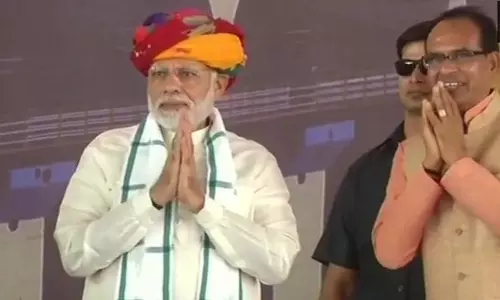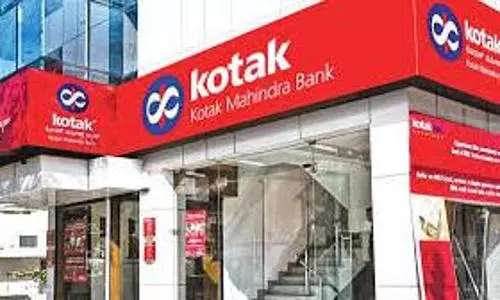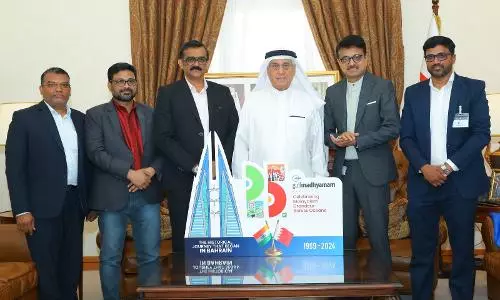
Credibility of Elections
text_fieldsThe end of elections in Gujarat ended with as much controversy as did its beginning. On the polling day, no kind of poll campaign or campaign equipment is permitted in the vicinity of polling booths, but the prime minister conducted nothing less than a roadshow, and he entered the scene greeting the nearly thousand BJP partymen gathered there who were just emerging after voting. .
With the workers lined up on either of the road shouting 'Modi, Modi', the prime minister held his car door open, stood on the footboard and moved some distance in that position. At the end of the campaign, the police had refused permission for road show to both the prime minister and Congress' president-elect Rahul Gandhi. As such, in the quiet atmosphere that prevailed around polling, putting up a virtual road show by PM amounted to challenging the election code of conduct. Understandably, the Congress has lodged strong protest against this. No one has ever so opently staged a rally in front of the polling booth, and accompanied by sloganeering by flag-holding partymen. Congress highlights the fact that the current Chief Election Commissioner, Achal Kumar Jyoti, used to be the chief secretary in Gujarat (from 2009 to 2013) during the tenure of Modi as chief minister. The Election Commission (EC), which served notice to Rahul Gandhi for giving interview to television channels on the eve of the polling day, did not take any action against the BJP which released its election manifesto on the eve of the polling day, thus giving credence to the charge that EC was discriminating between two parties in enforcing the same code of conduct.
Even at the beginning of the election, EC had taken questionable positions. At the press conference convened to declare elections, EC declared the dates for polling in Himachal Pradesh alone, omitting Gujarat in a deviation from precedent. The result of that unusual act was that the BJP got some more of respite for campaign which it badly needed. EC registered an FIR against the channels that telecast the interview with Rahul. But, as the Congress has pointed out, BJP president Amit Shah had conducted a press meet right on the polling day. And the pronouncements of prime minister Modi were not only unbecoming of the prime ministerial position, but also degrading to the elections. True, the EC may argue that it will not be in a position to prescribe how those like a prime minister should speak. But EC has an obligation to apply the code uniformly, and convince the nation of the same. When precedents that have existed for decades are violated, it damages public confidence in elections and EC, and consequently that of democracy itself.
EC has not allayed the suspicions regarding the Electronic Voting Machines (EVM) either. This time again there have been complaints about the EVM being fitted with bluetooth and about the votes getting registered only for the BJP's symbol. And there have been instances of entire villages abstaining from voting. In a country, with the reputation of having the most meticulous electoral machinery, now there is no use pretending that a shadow of doubt has fallen on everything from election campaign to code of conduct to voting. The reason to which this can be attributed is the inability of EC to convince us of its impartiality. Many are those who wonder whether EC, which had upheld justice in the Gujarat Rajya Sabha election, has later come under and succumbed to, pressures. When elections in some states and even for Lok Sabha a little later, are approaching, EC has to focus on regaining its lost credibility. After all, it is the credibility of elections that forms the very backbone of democracy.























